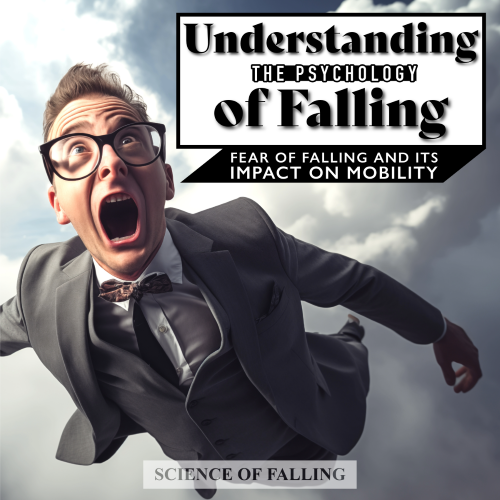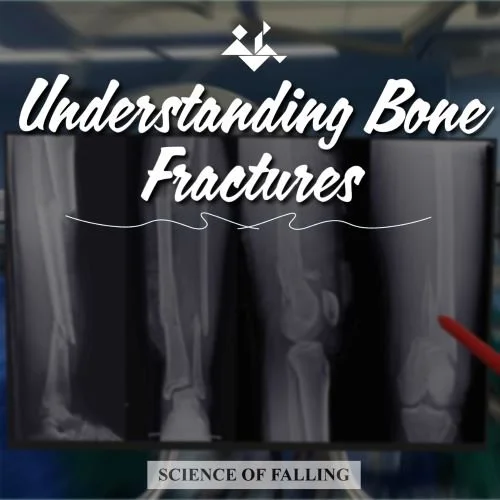Articles
How Dancers Spin Without Getting Dizzy: The Science Behind Their Control and Balance
Discover the science behind how dancers spin without getting dizzy! Learn about techniques like spotting, vestibular adaptation, and neuroplasticity that help dancers maintain control and balance. This article explores how these methods can reduce dizziness and improve stability, with applications for balance therapy and everyday life.
Which Parts of the Brain Are Responsible for Balance and Equilibrium?
Discover how your brain keeps you balanced and stable, from the vestibular system to the cerebellum and brainstem. Learn about the key brain regions responsible for equilibrium, the role of proprioception, and how balance training can enhance coordination and reduce the risk of falls. Explore how neuroplasticity allows your brain to adapt and improve balance over time, keeping you steady in daily life.
Vestibular Physiology: How Your Inner Ear Maintains Balance, Prevents Dizziness, and Affects Spatial Awareness
Learn how the vestibular system in your inner ear maintains balance, prevents dizziness, and helps with spatial awareness. Discover the role of fluids, semicircular canals, and otolith organs in detecting motion, and understand how vestibular health impacts everyday stability. Explore tips for improving balance and preventing dizziness through targeted exercises in this detailed guide.
Out of This World: How Space Messes with Your Balance
Explore how space disrupts astronauts' balance in microgravity, causing disorientation and space motion sickness. Learn how the brain adapts through neural recalibration and how these insights could help with balance disorders on Earth. Discover the challenges astronauts face, their coping mechanisms, and how space research is paving the way for new therapies in vestibular health.
The Reorientation Illusion: What It Is and How It Relates to Your Balance
Discover how the reorientation illusion affects your balance and increases fall risk. Learn how conflicting sensory signals from your vision, vestibular, and proprioceptive systems can confuse your brain, leading to disorientation. Explore practical tips for strengthening your balance systems and preventing falls at any age.
How Falls Cause Traumatic Brain Injuries (TBI): Understanding the Risks and Prevention
Falls are a leading cause of traumatic brain injuries (TBI), particularly in older adults. This article explores the risks associated with TBIs from falls, including symptoms, severity, and long-term consequences. Learn how falls can lead to life-changing brain injuries and discover effective prevention strategies, such as home modifications, strength and balance training, and proper use of assistive devices. Understanding the risks and taking proactive steps can help protect yourself and your loved ones from the devastating effects of a fall-related TBI.
Learn to Fall Safely: The Origins and Practical Applications of Parkour Ukemi
Discover how parkour ukemi blends athleticism and safety, combining parkour movement with martial arts fall techniques to minimize injury. Learn about its military origins, urban evolution, and practical applications for athletes, first responders, and older adults, focusing on injury prevention and resilience in everyday life.
Understanding the Psychology of Falling: Fear of Falling and Its Impact on Mobility
Explore the psychology behind the fear of falling (FOF) and its impact on mobility. Learn how the fear-avoidance cycle weakens physical health, the role of social support in overcoming FOF, and practical strategies for regaining confidence and improving balance. Discover how small, actionable steps can help break the cycle and enhance overall quality of life.
Unlocking the Secrets of Spatial Orientation: How Your Body Knows Which Way is Up
Explore how your body determines which way is up in this article on spatial orientation. Learn about the three key systems—vestibular, visual, and somatosensory—that work together to keep you balanced and oriented. Discover how sensory mismatches can lead to dizziness, vertigo, or motion sickness, and why visual illusions can trick your brain. Understanding these processes can help prevent disorientation and improve balance, especially as you age.
The Definitive Guide to Unstable Balance Training: Controversy, Benefits, Limitations
Discover the pros and cons of unstable balance training (UST) in this definitive guide. Learn how exercises on unstable surfaces, like Bosu balls and foam pads, can enhance balance, coordination, and injury prevention. Explore the benefits, limitations, and ideal users for UST, from older adults to athletes, and understand why it may not always be the best option for maximal strength or sports performance.
How Balance and Fall Risk Impact Cognitive Health: Reducing Dementia Risk Through Movement
Discover how improving your balance can reduce fall risk and support cognitive health. This article explores the vital connection between balance and brain function, showing how regular balance training can help prevent dementia and boost memory. Learn strategies to strengthen both your body and mind through effective exercises and dual-tasking techniques. Start protecting your cognitive health today!
The Surprising Connection Between Your Tongue and Balance: Exploring a Growing Field of Research
Discover the surprising link between your tongue and balance in this fascinating article. Explore how the tongue, jaw, and their associated nerves influence postural stability, and learn about emerging research and technologies like the BrainPort that use tongue stimulation to aid those with balance disorders.
The Power of Single-Leg Balance: Why It’s Vital for Your Health and Longevity
Discover the vital role single-leg balance plays in your health and longevity. Learn how improving balance can prevent injuries, boost athletic performance, and even protect cognitive function. With simple exercises you can do in just 10 minutes a day, start enhancing your balance and ensure a healthier future.
Improve Balance and Athletic Performance by Strengthening Weak Hips and Ankles
Discover how strengthening weak hips and ankles can improve balance, prevent injuries, and enhance athletic performance. Learn the interconnected relationship between hip and ankle stability, the importance of neuromuscular control, and practical exercises for long-term health benefits. Perfect for athletes and anyone seeking to stay injury-free and improve movement efficiency.
Optimizing Bone Health: Your Complete Guide to Stronger Bones and a Healthier Future
Learn how bone density impacts strength and resilience, why osteoporosis is a silent yet serious condition, and the lifestyle changes that can help preserve bone health as you age. Discover the importance of calcium, vitamin D, exercise, and regular screenings to prevent fractures and maintain strong bones.
The Prime Five: Your Path to Lifelong Fitness and Health
Unlock the secrets to lifelong fitness with the Prime Five framework—Endurance, Strength, Balance, Flexibility, and Skillful Movement Integration. Learn practical tips and a sample workout plan to enhance your healthspan, improve mobility, and stay active as you age. Start your journey to sustainable wellness today!
SoF Historical Spotlight: The Art and Science of Tightrope Walking with A Tribute to Philippe Petit
Explore the art and skill of tightrope walking, from ancient civilizations to Philippe Petit's iconic walk between the Twin Towers. Learn about the mental and physical demands of funambulism, the incredible balance required, and Petit's lasting legacy in this daring and inspiring journey.
The Power of Tandem Balance and Tandem Walking
Improve stability and reduce fall risk with tandem balance exercises. Discover how static tandem balance and tandem walking strengthen coordination, uncover hidden balance issues, and promote healthy aging. Regular practice enhances your internal balance mechanisms, boosts cognitive function, and supports independence, helping you avoid falls and stay active as you age.
6 Muscles You Should Work for Improved Balance and Athleticism
Discover how building strength in key muscle groups like the core, quads, hamstrings, glutes, calves, and anterior tibialis can improve balance and athletic performance. Learn targeted exercises such as squats, calf raises, and hamstring curls to strengthen muscles that stabilize the body and reduce the risk of falls. Get tips on creating a customized workout routine to enhance strength and balance over time, with effective sets and repetitions for maximum results.
Understanding Bone Fractures
Falls are the leading cause of bone fractures, particularly among older adults. Learn how age, health conditions, and environmental hazards increase fracture risk, and discover proactive strategies to prevent falls. Explore the role of bone health, balance, and lifestyle choices in fracture prevention, and gain insights into different types of fractures and their impacts. Protect your bones and stay safe with effective prevention tips.




















